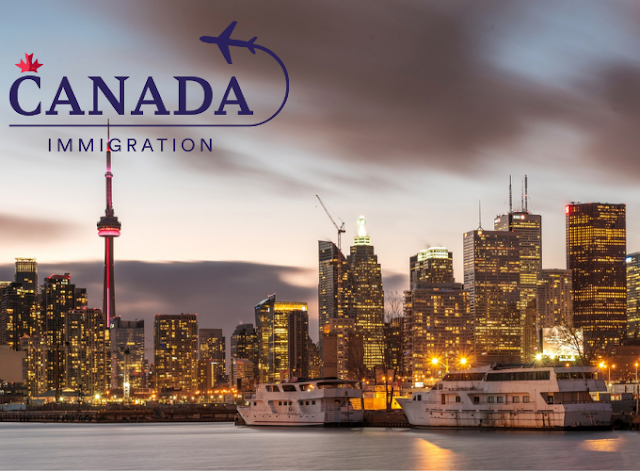Canada’s TR to PR Immigration Programs for Essential Workers and International Students
Canada has always been a serious attraction for immigrants due to its immigration friendly laws and vast educational opportunities. Canadain immigration is steadily on the increase. This has also led to a rise in demand for Canada immigration consultancy services as more and more people are trying to search for ‘consultancy services near me’. Consultancy services help answer basic questions on Canada immigration process and help customers with documents and visas.
The main aim of the article is to
know Canada’s TR to PR Immigration Programs for Essential Workers and
International Students.
What is PR?
Permanent residents of Canada should
carry and present their valid PR card or permanent resident travel document
(PRTD) in order to board a flight to Canada, or while travelling to Canada
through any other means. If you're do not carry your PR card or PRTD, you'll
not be able to board your flight etc.
It also becomes your responsibility
to make sure that your PR card remains valid once you return from outside
Canada, and ensure that you timely apply for a new PR card. If your PR card
expires, it doesn't mean you've lost permanent resident status, only that you simply
got to renew it.
According to an online site ‘A
permanent resident is someone who has been given permanent resident status by
immigrating to Canada, but isn't a Canadian citizen. Permanent residents are
citizens of other countries.’
A person in Canada who lives
temporarily, who is either a student or foreign worker, isn't a permanent
resident but a temporary resident. Refugees who are resettled from overseas can
become permanent residents through the Government-Assisted Refugee Program /
the Private Sponsorship of Refugees Program. Someone who makes a refugee claim
in Canada doesn't become a permanent resident at that point. To become a PR,
the Immigration and Refugee Board must first approve their claim based on their
credentials and application. Then, they need to apply for and obtain permanent
resident status.
International students
“According to Immigration, Refugees
and Citizenship Canada (IRCC) data, Canada’s international student population
grew by 13 per cent in 2019 compared to the previous year, marking yet one more
year of double-digit growth. Overall, 404,000 international students saw their
study permits become in 2019.” Canada’s international student population has
grown over 3 times within the past decade alone. Additionally, it is interesting
to notice that Indian students account for 34 percent of the entire number of
international students in Canada.
International students studying in
Canada can apply for Canadian permanent resident status while they're studying
in Canada or after completing their studies, as long as they meet the wants of
the Canadian immigration program
under which they apply. Applying for a Canadian study permit and Canadian
permanent resident status together is known as “dual intent”, and such a
practice is common and accepted by Canadian
immigration law.
Following are various categories of Canadian immigration programs that the
students should consider:
1. Canadian Experience Class (CEC)
In order to qualify for the Canadian
experience class, student applicants must have at least 12 months of labor
experience in Canada. During their stay (candidates must apply within three
years of obtaining 1 year of qualifying experience). Students can also obtain
some work experience in Canada by applying for a Canadian post-graduate permit
that many universities offer. It’s important to note that part-time work
experience earned during studies equivalent to a study program (such as
internships and co-ops) doesn't count towards the Canadian work experience
requirement.
2. Quebec Experience Class (QEC)
International students with a
completed and recognized program of study in the Quebec province, and who
possess an intermediate level of proficiency in the French language can qualify
under this Canadian immigration
program in particular. Canadian work experience isn't required for this Quebec
immigration program.
3. Provincial Nominee Programs
(PNPs)
A number of provinces offer Canadian immigration programs for
foreign students via the provincial nominee program. Generally speaking, applicants
must have a degree from a Canadian post-education program, on record.
Requirements can vary by province, and sometimes work experience and employment
offers are also required. PNPs are a popular Canadian immigration option as applications for Canadian permanent
residency are usually processed faster thus requiring a lesser waiting period,
in the whole process.
Essential workers
The new policy stands implemented,
according to an Immigration, Refugees and Citizenship Canada (IRCC) media
release. It serves to benefit temporary residents who are already in Canada
with an employment offer, but it doesn't apply to anyone arriving in Canada as
a visitor.
Visitors who meet the eligibility criteria can easily apply under the new temporary immigration policy, which incorporates Super Visa holders, business visitors.
Federal trained worker Program
Operated through the Express Entry
immigration system, the Federal trained worker (FSW) program could even be an
option for a few international student graduates. Sources claim that, Unlike
the Canadian Experience Class (CEC), FSW doesn't require a person to possess
Canadian work experience, which is a popular option for international student
graduates who already gained skilled work experience abroad.
The FSW program is a merit-based
immigration program that uses a points-based Comprehensive Ranking System (CRS)
score to automatically rank candidates against each other and further, only
invites those candidates with the most competitive profiles to use for
permanent residence. If an international student meets the specified
eligibility requirements and is extremely competitive within the CRS scoring
system, FSW is often a superb pathway to becoming a permanent resident.
It is important to note, one of the
main conditions under the FSW program requires the applicants to have a minimum
of 1 year or 12 months of full-time, continuous, skilled work experience from
any country, or the corresponding amount in part-time experience. For
international students who haven't entered the workforce, this program is not
an option. Once an international student or essential worker lives in Canada
for a few years it is through the status of PR that they extend their stay and
shift within the territorial boundaries of Canada.
Conclusion
Thus it becomes necessary for workers and international
students to know more consultancy
services near them to get better clarity on the Canada immigration process.



Comments
Post a Comment